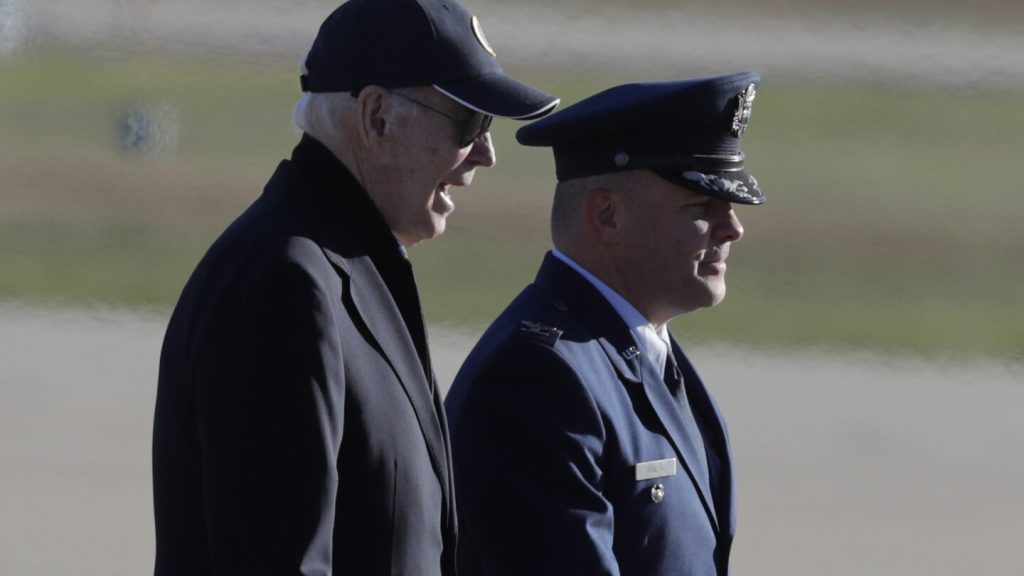President Joe Biden traveled to Berlin to meet with German Chancellor Olaf Scholz and other European leaders as his time in office nears its end. The meetings are focused on strengthening alliances and discussing crucial issues such as the ongoing conflict in Ukraine, European Union relations, democratic values, trade and technology, global supply chains, and security concerns in various regions. Biden expressed gratitude to Scholz for his partnership, particularly in facilitating a prisoner swap earlier this year that brought back American citizens from overseas. The trip also serves to prepare allies for the potential return of Donald Trump to the White House, who has raised concerns with his foreign policy approach and relationship with Russian President Vladimir Putin. Biden’s administration announced additional military aid to Ukraine during the visit.
The U.S. and Germany have been significant supporters of Ukraine in its fight against Russian aggression. Biden’s trip to Berlin is aimed at reaffirming the strong ties between the two countries and discussing ways to address critical global challenges. The visit also includes discussions with other European leaders in the “European Quad” group, which consists of Biden, Scholz, French President Emmanuel Macron, and British Prime Minister Keir Starmer. The focus is on enhancing cooperation and solidarity among Western allies in facing common threats and promoting shared values. Biden’s decision to prioritize diplomacy and multilateralism reflects his belief in the power of relationships and partnerships in addressing complex international issues.
While in Germany, Biden will meet with President Frank-Walter Steinmeier and engage in discussions on a wide range of topics, including the situation in Ukraine, EU relations, trade, technology, and security in various regions. The meetings are crucial in shaping the future direction of U.S. foreign policy and strengthening alliances in the face of increasing global challenges. Biden’s commitment to upholding democratic values and defending Western interests is evident in his efforts to engage with key European partners and bolster cooperation on a range of pressing issues. The trip also highlights the importance of collective action and solidarity in addressing common security threats and promoting stability and prosperity in the region.
As the U.S. presidential election approaches, Biden’s visit to Germany takes on added significance in light of the potential return of Donald Trump to the White House. Trump’s questioning of America’s commitment to NATO and his unpredictable foreign policy approach have raised concerns among allies. Biden’s efforts to reassure allies and emphasize the importance of a united front in facing shared challenges underscore the importance of continuity in U.S. foreign policy. The meetings in Berlin serve as a platform for discussing key strategic issues and strengthening cooperation among Western democracies in a rapidly changing global landscape. By reaffirming America’s commitment to its allies and promoting a common agenda based on shared values and interests, Biden aims to bolster transatlantic relations and enhance global security and stability.
The Biden administration’s announcement of additional military aid to Ukraine reflects the ongoing commitment to supporting the country’s efforts to defend its sovereignty and territorial integrity. The diplomatic efforts to address the crisis in Ukraine and push back against Russian aggression demonstrate a united front among Western allies in promoting peace and security in the region. The assistance provided by the U.S. and Germany underscores the importance of international solidarity in upholding democratic values and deterring destabilizing actions by hostile actors. Biden’s focus on diplomacy and engagement with key partners reflects a strategic approach to addressing global challenges and advancing U.S. interests in a complex and dynamic geopolitical environment.
Overall, Biden’s visit to Germany highlights the importance of strong alliances and multilateral cooperation in addressing common security threats and promoting peace and stability in the region. The meetings with German Chancellor Scholz and other European leaders underscore the shared commitment to upholding democratic values, defending Western interests, and countering external threats. As Biden’s term in office comes to an end, the trip to Berlin serves as an opportunity to reaffirm America’s leadership role in the world and strengthen relationships with key allies. By emphasizing diplomacy and collaboration, Biden seeks to navigate the intricate challenges of the global landscape and build a more secure and prosperous future for the United States and its partners.


